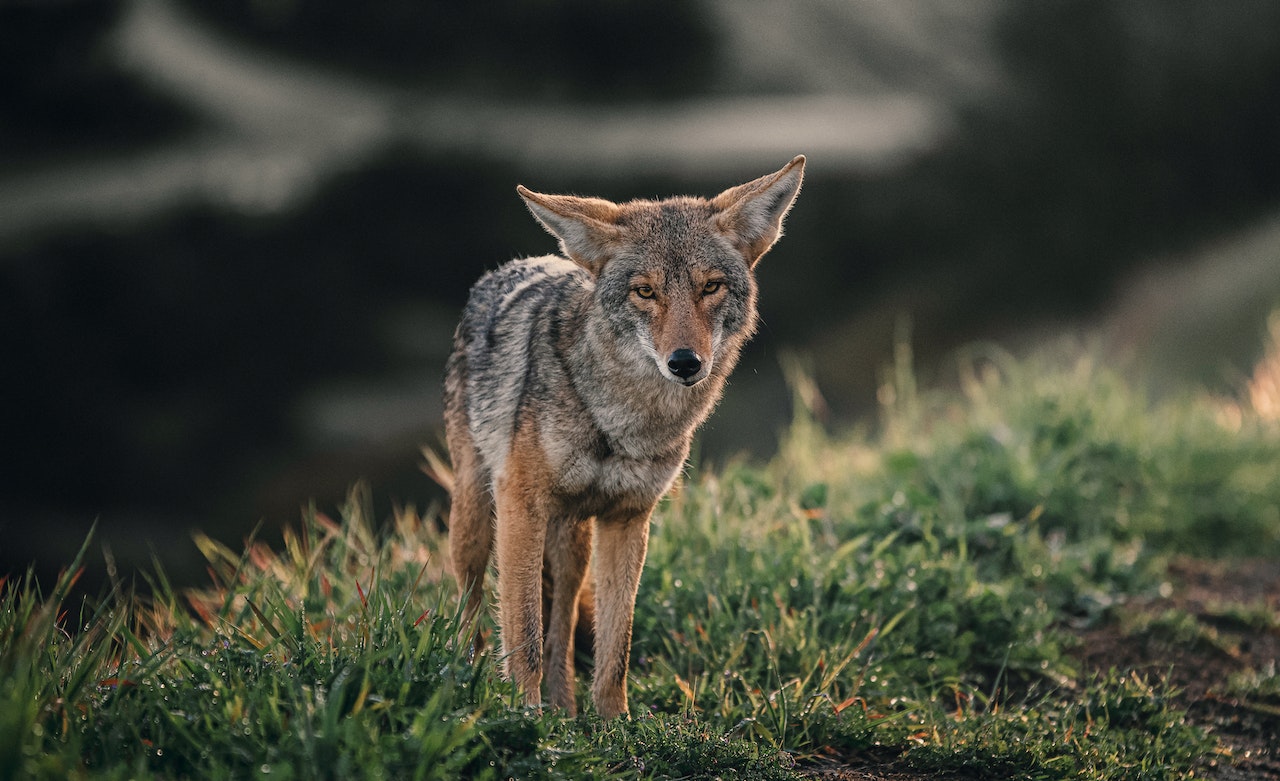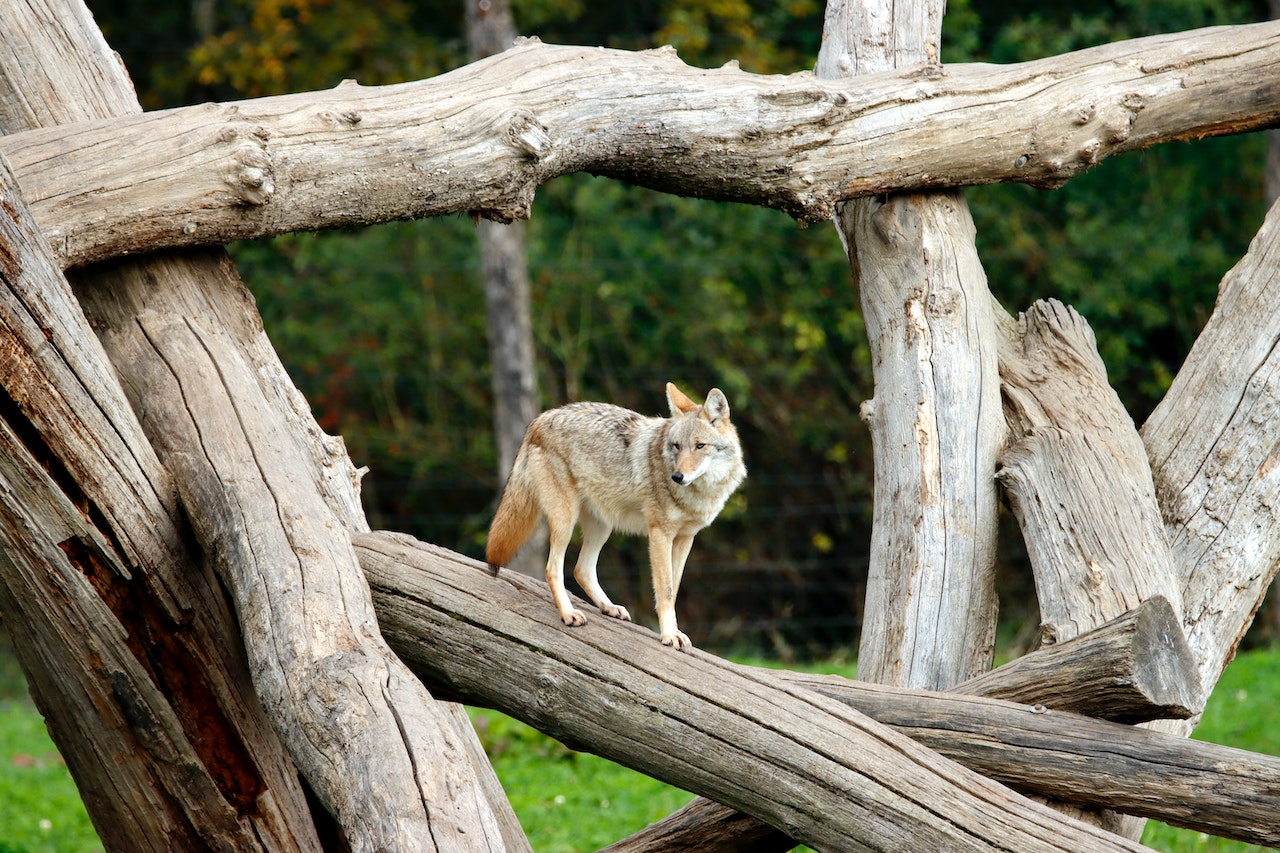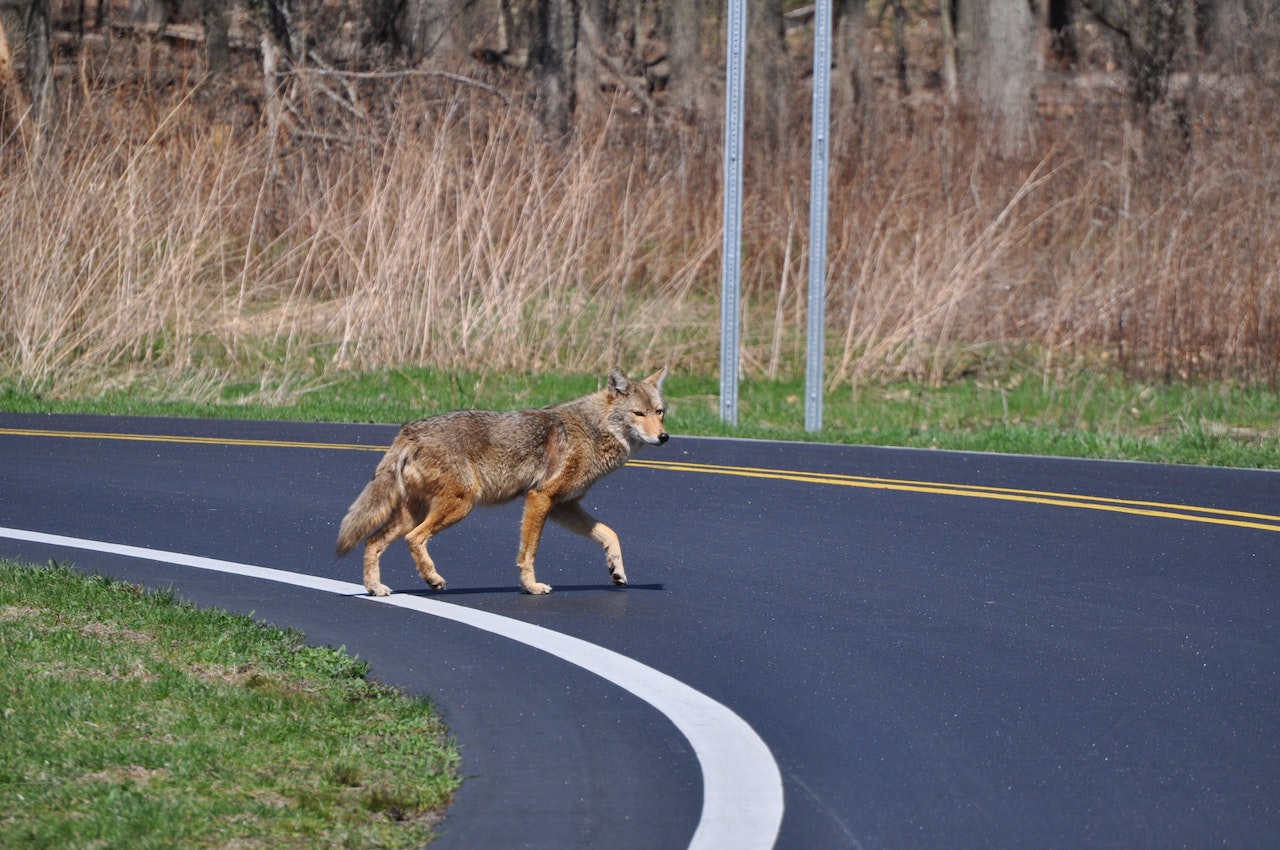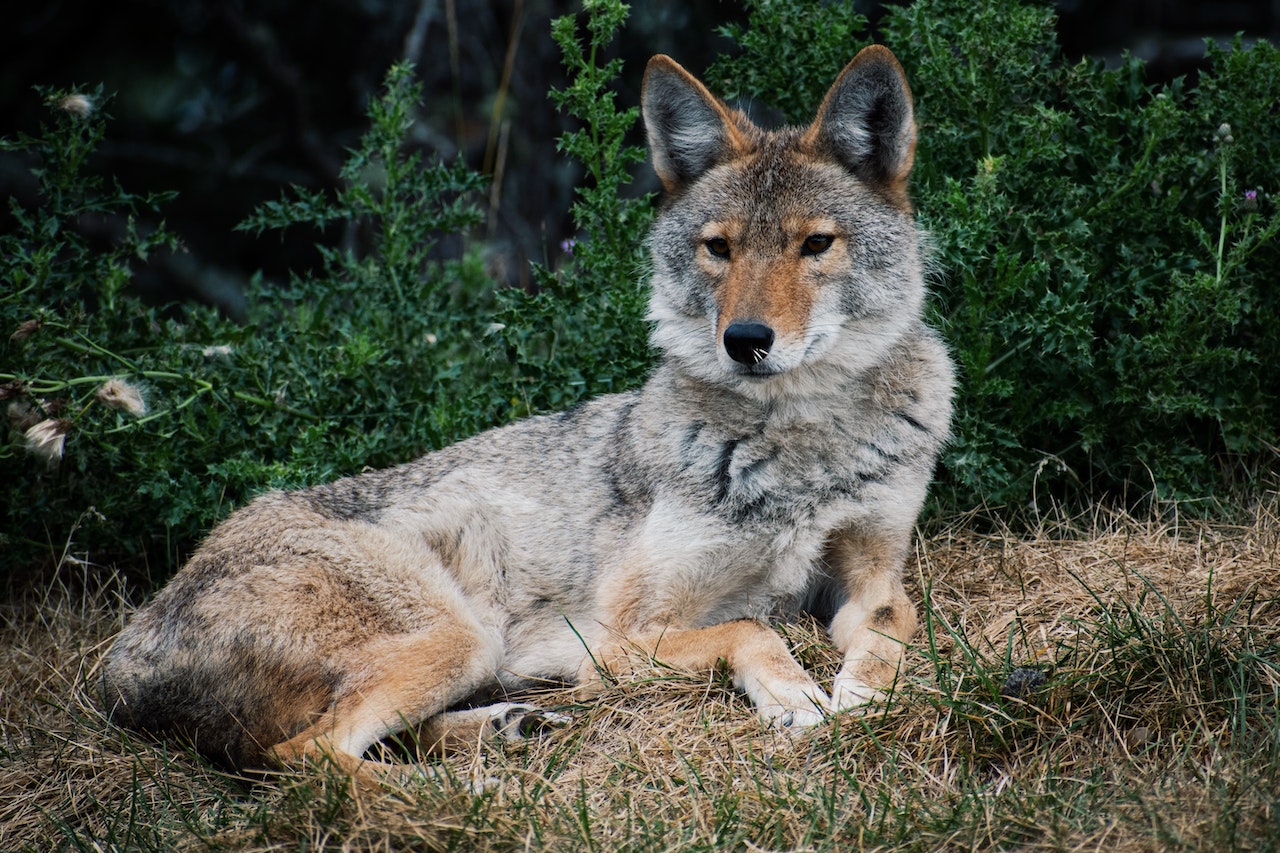Biblical Meaning Of Coyote In Dream
Discover the Biblical meaning of coyote. Explore the symbolic significance and interpretations within biblical contexts.
Author:Suleman ShahReviewer:Han JuOct 23, 2023949 Shares316.4K Views

Coyote is a strong and almost magical animal. It is an essential part of nearly every old culture in the world. You will understand them better after reading this piece. Here are some interesting facts about this fantastic animal. First, do you know what it means to see a coyote?
Seeing a fox makes us think about things we've pushed down or kept from others. Something like this often affects our body, mind, and spirit, even if we are unaware. A step toward being whole is realizing what you've buried and finding ways to deal with it. In this article, we will unlock the biblical meaning of Coyoteand explore the symbolic significance and interpretations within biblical contexts.
What Does Coyote Mean?
Coyotes have deep roots in many cultures, and you can find their meaning and importance in almost all national folktales. Since there are so many coyotes in North America, they have a special place in Native American history. However, coyotes are also found in many other countries.
Native Americans think of the coyote as an intelligent and sneaky animal that can teach you a lot about life. It tells you to keep your mind sharp and use all your knowledge when you face problems.
Luck Is On Your Side
People often think that seeing a fox means good luck. People think this strong totem animal will show you that things will go well, whether you're looking for love, a new job, or moving. Accept the coyote's lesson and believe the universe will help you.
Finding Balance In Life
Coyotes are very good at lying but always know what they want and how to stay alive. If a coyote shows up in your life, you must pay attention to balance. These animals like to play but are also good hunters and work well with others. The coyote shows us how to be serious and funny simultaneously so we can reach our goals and fully enjoy life.
Positive And Negative Aspects Of Coyote
If a coyote is your spirit animal, you are a strong one. You know how to get things done and take good care of yourself. Some people might call you sneaky and clever. This is because you are smart and clever to get what you want. You probably also love and care for your family and friends a lot.
Positive Characteristics Of The Coyote Spirit Animal
You are smart if the fox is your spirit animal. You can devise plans on the spot and always be ahead of your opponents. That's because different types of coyotes have other powers. There are some good things about coyotes.
- Cunning
- Resourceful
- Clever
- Intelligent
- Agile
- Quick thinker
- Strategic
- Persistent
- Tireless
Negative Characteristics Of The Coyote Spirit Animal
People usually think of the coyote as a good spirit animal, but there are also some bad things about this animal. It can be scary to deal with a fox that is upset. Keep an eye on your flaws to keep yourself from becoming unstable. Things that are bad about the coyote.
- Self-centered
- Arrogant
- Stubborn
- Unpredictable
- Destructive
- Impulsive
- Reckless
- Vengeful
- Easily offended
- Insecure
Coyote Myths And Stories - Unveiling The Cultural Riches
Because they are smart and can change their minds quickly, coyotes have fascinated many cultures throughout history. When it comes to legend and folklore, coyotes often play essential parts. They can be anything from tricksters to makers. Let's take a trip through some exciting fox tales and stories worldwide.
Coyote In Native American Folklore
- Coyote and the Creation of Humans- In many Native American groups, there are stories about how Coyote helped make people. Coyote's deeds often lead to humans getting certain traits or skills in these stories.
- Coyote the Trickster- Native American myth says that the Coyote is a trickster. This may be the most well-known thing about the animal. In these stories, Coyote often gets into funny and dangerous situations that hurt other people or himself.
Navajo Coyote Stories
Coyote and the Monster Slayer Twins- In Navajo legend, the Hero Twins, Monster Slayer, and Born-for-Water all have an animal friend named Coyote who helps them. This Coyote helps the twins find and kill monsters and evil spirits on their quests.
Mexican Folklore
Coyote and the Moon- In Mexican tradition, there are stories about how Coyote tried to catch the Moon. There are a lot of cultural symbols in these stories, and they show what people in that area believe.
Southwestern Coyote Stories
Coyote as a Teacher- Native Americans from the Southwestern United States believe that Coyote is a teacher and guide who teaches people about life through his adventures and mishaps.
African And Middle Eastern Myths
Coyote's African and Middle Eastern Counterparts- Myths and stories from some African and Middle Eastern countries discuss animals resembling coyotes. These animals are often used to trick people or teach lessons about culture.
Modern Interpretations
Coyote in Contemporary Literature and Popular Culture- The Coyote is in current books, drawings, and pop culture. Authors and artists use the Coyote's long past in mythology to create new stories and figures.
Environmental And Conservation Stories
Coyotes in the Urban Wild- Recently, there have been reports about foxes getting used to living in cities. These stories show how strong these animals are and how important it is for people and animals to live together peacefully.
Personal Encounters And Stories
Firsthand Encounters with Coyotes - Many people have personal stories about running into coyotes in the wild or cities. A lot of the time, these stories focus on how strange and exciting these animals are.
Coyote In Dream Meaning
Many people don't feel good when they dream of this animal from a dog family. Many people are afraid of coyotes because they are known as the younger brothers of wolves. Seeing them in your dreams is a complicated sign.
Coyotes are sometimes seen as a sign of knowledge and a person's awareness of how everything in nature works together. On the other hand, some people see foxes as a sign of weakness, lying, and cowardice.
They see it as someone getting involved in something that isn't their business. However, the right way to understand a coyote dream rests on the specifics. Seeing a group of coyotes attack or threaten you in your goal means that you might be in danger soon.
Biblical Meaning Of Coyote
Many nations have been interested in the coyote and its meaning throughout history. In ancient Greece, the coyote was seen as a messenger of Apollo. In some Native American tribes, it was seen as a sign of knowledge, skill, and cunning.
In the Bible, this animal has stood for both good and evil; it has been seen as a lousy trickster and a symbol of loyalty and devotion. The word "coyote" is used in several places in the Bible. Jesus says in Luke 12:39–40 that if someone doesn't want to get ready for his return, he will find them like a fox "forced by necessity to go out in search of food."
Bible Verses About Coyote
The Bible does not explicitly mention coyotes, as these animals are not native to the regions and cultures described in the biblical texts. However, the Bible contains references to various other animals, and some of these verses may offer insights or lessons that can be applied to understanding coyotes or wildlife in general. Here are a few relevant Bible verses:
Genesis 1:25
"God made the wild animals according to their kinds, the livestock according to their kinds, and all the creatures that move along the ground according to their kinds. And God saw that it was good."
This verse emphasizes that God created all creatures, including wild animals, according to their kind and declared them suitable. It underscores the importance of respecting and appreciating the diversity of life on Earth.
Job 12:7-10
"But ask the animals, and they will teach you, or the birds in the sky, and they will tell you; speak to the Earth, and it will teach you, or let the fish in the sea inform you. Which of all these does not know that the hand of the Lord has done this? In his hand is the life of every creature and the breath of all humanity."
This passage in the Book of Job highlights that God's creation, including animals, can teach valuable lessons about the Creator and the natural world. It emphasizes the interconnectedness of all living beings.
Psalm 104:24-30
"How many are your works, Lord? In wisdom, you made them all; the earth is full of your creatures. There is a vast and spacious sea teeming with creatures beyond the number of living things, both large and small. When you send your Spirit, they are created, and you renew the face of the ground."
This Psalm praises God's wisdom in creating all living creatures and acknowledges the role of God's Spirit in sustaining and renewing the natural world. While not specifically about coyotes, it reflects a broader appreciation for God's creation.
Spiritual Meaning Of Coyote
Coyotes are a well-known animal in North America, and they have different meanings in different cultures. From the Native American cultures of the land to more modern ideas, coyotes have become a part of our spiritual lives and ways of knowing. People from some Indigenous groups saw the coyote as a very powerful trickster.
People thought he could change into many different forms and go to places that neither people nor other spirit animals could. This respect for this animal's ability to change has been passed down from generation to generation, giving us lessons about being flexible and strong when things go wrong.
The Trickster Archetype
For many Native American groups, the coyote is a critical trickster animal. The coyote is the perfect example of the trickster character that can be found worldwide in folklore. Tricksters are known for being sneaky, unpredictable, and unwilling to follow the rules. They change things and make people think about what they believe and do.
Adaptability And Resilience
From a spiritual point of view, the coyote shows us how important it is to be flexible and strong in our lives. Life is uncertain, and there are many things we can't change. Like coyotes, we must learn to change and be strong and clever even when tough things happen. The coyote's toughness shows us that we can get through hard times and come out better.
Transformation And Change
In a spiritual sense, the coyote tells us to welcome change and growth. We must be ready to let go of old ideas and habits to allow new experiences and knowledge to come into our lives. In some stories, the coyote can change into a different animal. This reminds us that change is a normal part of our spiritual journey.
Guidance And Wisdom
In a mental sense, the fox may show us that we are not alone. We need help seeing forces and powers that can help and protect us. The coyote uses its instincts and knowledge to survive in the wild. Similarly, we can use our inner direction to make decisions that align with our higher purpose.
Biblical Meaning Of Coyote - FAQs
What Is The Spiritual Meaning Of The Coyote?
The coyote's spiritual connotation emphasizes adaptability, metamorphosis, and the trickster image, encouraging us to accept change and overcome life's problems.
Are Coyotes Good Or Bad?
Coyotes are neither inherently good nor bad in a spiritual context; they symbolize the balance of dualities and the complexities of life.
What Does A Black Coyote Mean Spiritually?
A black coyote can symbolize mystery, transformation, or a need to spiritually explore hidden aspects of yourself or your life.
What Does It Mean When A Coyote Crosses Your Spiritual Path?
When a coyote crosses your path spiritually, it may be a sign to pay attention to your intuition, adaptability, or the need to embrace change in your spiritual journey.
Conclusion
In our exploration of the biblical meaning of coyote, we have uncovered a rich tapestry of symbolism and spiritual lessons. From the trickster archetype to adaptability in the wilderness, resilience, and maintaining balance, the coyote's characteristics resonate with the timeless teachings of the Bible.

Suleman Shah
Author
Suleman Shah is a researcher and freelance writer. As a researcher, he has worked with MNS University of Agriculture, Multan (Pakistan) and Texas A & M University (USA). He regularly writes science articles and blogs for science news website immersse.com and open access publishers OA Publishing London and Scientific Times. He loves to keep himself updated on scientific developments and convert these developments into everyday language to update the readers about the developments in the scientific era. His primary research focus is Plant sciences, and he contributed to this field by publishing his research in scientific journals and presenting his work at many Conferences.
Shah graduated from the University of Agriculture Faisalabad (Pakistan) and started his professional carrier with Jaffer Agro Services and later with the Agriculture Department of the Government of Pakistan. His research interest compelled and attracted him to proceed with his carrier in Plant sciences research. So, he started his Ph.D. in Soil Science at MNS University of Agriculture Multan (Pakistan). Later, he started working as a visiting scholar with Texas A&M University (USA).
Shah’s experience with big Open Excess publishers like Springers, Frontiers, MDPI, etc., testified to his belief in Open Access as a barrier-removing mechanism between researchers and the readers of their research. Shah believes that Open Access is revolutionizing the publication process and benefitting research in all fields.

Han Ju
Reviewer
Hello! I'm Han Ju, the heart behind World Wide Journals. My life is a unique tapestry woven from the threads of news, spirituality, and science, enriched by melodies from my guitar. Raised amidst tales of the ancient and the arcane, I developed a keen eye for the stories that truly matter. Through my work, I seek to bridge the seen with the unseen, marrying the rigor of science with the depth of spirituality.
Each article at World Wide Journals is a piece of this ongoing quest, blending analysis with personal reflection. Whether exploring quantum frontiers or strumming chords under the stars, my aim is to inspire and provoke thought, inviting you into a world where every discovery is a note in the grand symphony of existence.
Welcome aboard this journey of insight and exploration, where curiosity leads and music guides.
Latest Articles
Popular Articles


